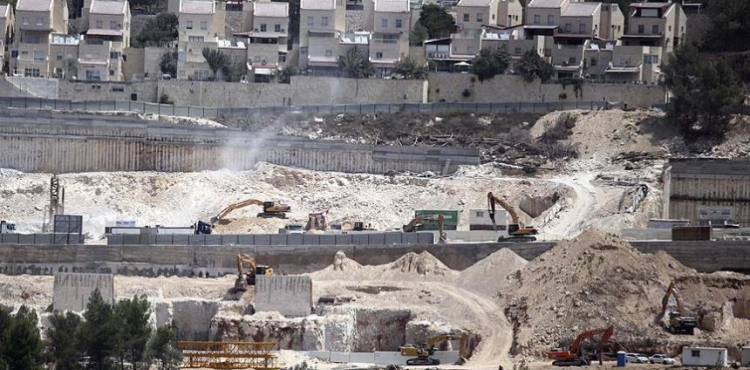The representative of the European Union, Sven Kuhn von Burgsdorf, expressed the concern of the member states of the Union and the partner countries about the continued settlement expansion, the constant threat of property demolitions, and the eviction faced by local communities.
This came during a visit by the heads of missions and representatives of the European Union “Austria, Belgium, Denmark, Finland, France, Ireland, the Netherlands, Norway, Germany, Romania, Italy, Poland, Spain, Sweden, Switzerland and the United Kingdom,” today, Thursday, to regions and gatherings Surrounding the two settlements of "Givat Hamatos" and "Har Homa", which are established on Palestinian lands, south of occupied Jerusalem.
They also carried out a tour of the so-called "E1" area in East Jerusalem, where Israel is taking concrete steps towards expanding settlements, including the recent announcement of 5,000 additional settlement units in the West Bank, including East Jerusalem.
Burgsdorf called on Israel to stop all settlement activities, including in East Jerusalem and its environs, which pose a threat to the possibility of establishing a viable and geographically contiguous Palestinian state, in which Jerusalem would be the capital of the two states, within the vision of a negotiated two-state solution, and in accordance with internationally agreed standards.
Heads of missions and representatives met with citizens, representatives of society and civil society organizations active in the gatherings.
The speakers reviewed the humanitarian challenges and difficulties facing citizens due to the settlements, the demolition policy, the annexation wall and the racial expansion.
The participating countries expressed their strong opposition to the Israeli settlement policy and the measures taken in this context, stressing the illegality of settlement in international law, and its direct threat to the existing efforts to rebuild confidence between the parties.
The European Union and other countries had confirmed not to recognize any changes to the pre-1967 borders, including with regard to Jerusalem, except for what the parties agreed upon.












